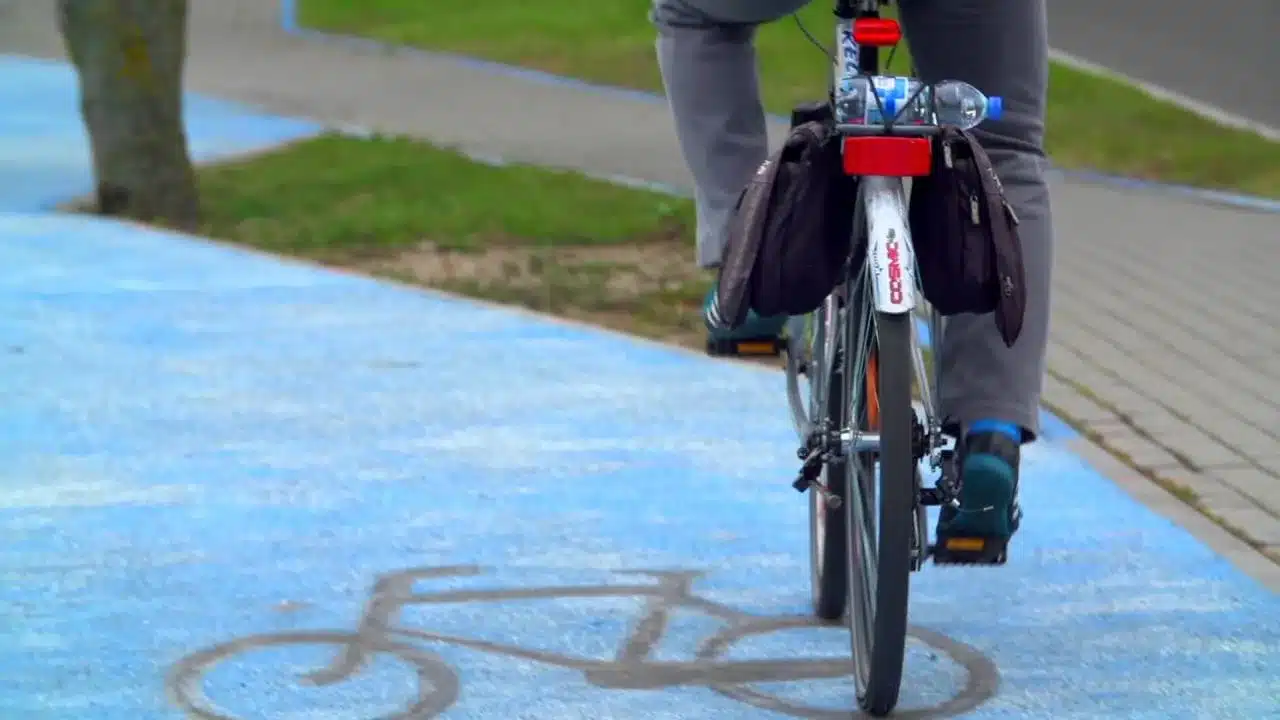As per the latest study conducted by Santander Leasing among the general Polish population, one-tenth (10%) of respondents declared that they own an electric bicycle. A slightly smaller percentage (9%) use rental services, while four-fifths have never used an electric bicycle. Among those who use an electric bike, 52% of respondents own their own, while 48% rent it.
For several years, electromobility has been gaining popularity all across Europe. Poles are increasingly choosing vehicles powered by low and zero-emission alternative fuels, no doubt influenced by the millions of small, often domestic renewable energy installations that have sprung up in recent years. This trend has greatly accelerated due to both programs such as “My Electric” that provides subsidies for the purchase or leasing of zero-emission vehicles, and an increasing societal awareness of humanity’s impact on the environment. Therefore it comes as no surprise that the announcement of another subsidy program, this time for the purchase of electric bicycles, can greatly contribute to building this awareness.
“It’s worth noting at this point that according to Ipsos in 2022, Poland, along with Sweden and the Netherlands, are among the countries where residents most often own bicycles. On average globally, 42% of people own a bike, while in Poland it’s 69%, in the Netherlands – 72%, and in Sweden – 68%. Meanwhile, the Polish Bicycle Association reports that over 71% of bicycle shop representatives predict the development of the e-bike segment in 2024.” – says Mariusz Włodarczyk, Managing Director of Santander Leasing. “Very importantly, the bicycle industry is advocating for a cycling strategy in our country and an incentive system like the announced subsidy program from 2025, as well as adequate infrastructure. All these significantly contribute to the sustainable development of transport in our country” – he adds.
Electric Bicycle Perception by Poles
Results from the study conducted in June and July this year indicate that respondents most often associate electric bicycles with comfort and convenience (17% of all Poles and 32% of electric bike users). Less often, people associated e-bikes with effortless riding, facilitation, or support (15% of all and 14% of users), and speed (10% of all and 17% of users). The greatest difference in perception of this two-wheeled vehicle appears in associations with laziness and comfortability. In this case, 8% of all respondents indicated such a characteristic, while the percentage of people using electric bicycles was 1%.
“Interestingly, the results of our study clearly show that the bicycle or electric scooter may be an attractive solution for employee benefits, which in turn is an interesting solution supported by leasing companies. Respondents using an electric bicycle (70%) considerably more often than the general Polish population (45%) declare that an electric scooter or bicycle offered as a benefit by a potential employer would encourage them to work for them” – indicates Mariusz Włodarczyk.
Electric Bicycle Ownership Barriers
Among all Poles surveyed, the main reasons for not owning an electric bike include preference for a traditional bike (64%) and the perception that electric bikes are too expensive (51%). Respondents who use electric bikes primarily highlight the high price (47%), and to a lesser extent, they report a preference for a traditional bike (37%). Additionally, respondents frequently mentioned factors such as the inability to use them year-round (20%), lack of storage space (19%), and preference for bike rental (19%). Due to high costs, middle-educated people (58% overall) and rural residents (57% overall) are less likely to purchase them. Women (72% overall) and respondents aged 18-24 (80% overall) prefer to ride classic bikes.
Prototype Subsidy Program as a Stimulus for Cycling Change
In early July 2024, the National Fund for Environmental Protection and Water Management presented a draft program “My Electric Bicycle” for consultation. The Fund received over five hundred comments during consultation. Most often, they concerned increasing the amount of subsidy for bike purchases and expanding the catalog of qualifying costs or those subject to refund. According to project assumptions, the program will be implemented in 2025-2029, with a budget of PLN 300 million, enabling over 46,000 electric bicycles to be purchased. The project provides for a subsidy for the purchase of new electric bicycles – 50% of costs, but not more than PLN 5,000. For a cargo bike or bicycle trailer, the subsidy could be up to PLN 9,000.
Source: https://managerplus.pl/rowery-elektryczne-podbijaja-polske-rzadowe-wsparcie-przyspieszy-zmiany-65363
